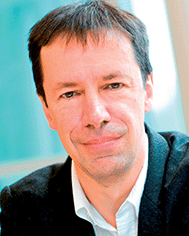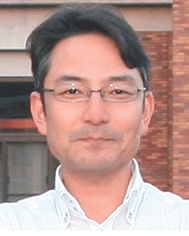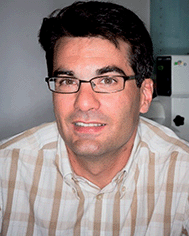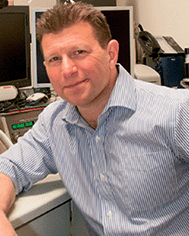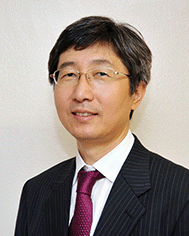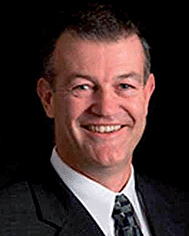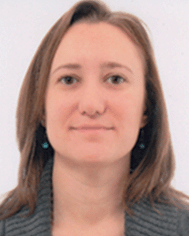Welcome to the first issue of Sustainable Energy & Fuels
We are delighted to introduce you to the inaugural issue of Sustainable Energy & Fuels (http://rsc.li/sustainable-energy), a journal that will become an essential resource for the energy community. Sustainable Energy & Fuels will publish research that contributes to the development of sustainable energy technologies with a particular emphasis on new and next-generation technologies. The journal cuts across major disciplines – materials science, chemistry, physics, engineering and biology – covering evolving and emerging areas. Sustainable Energy & Fuels has an international Editorial Board of Associate Editors who handle papers through peer review: full introductions to them are below.Moving towards more sustainable energy technologies is a key challenge for the 21st century. It will require a broad spectrum of transformational science and engineering, addressing challenges ranging from reducing the cost of renewable electricity to new energy storage materials and more sustainable routes to the synthesis of fuels and chemicals. Chemistry has a key role to play in this transformation, so it is particularly appropriate for the Royal Society of Chemistry to be launching this new journal focused on the challenge of sustainable energy and fuels. We greatly hope this new journal will become an invaluable resource to scientists and engineers working to address this challenge.
Because of its global importance, the field of energy is a rapidly growing research topic, and this is reflected in terms of publication output. We felt that the community was not being fully served by the current publishing landscape and Sustainable Energy & Fuels fills a key gap. We are delighted that already the launch of Sustainable Energy & Fuels has been very positively received by colleagues worldwide.
In this first issue we have compiled a selection of papers demonstrating the breadth and multidisciplinary nature of the field, and also demonstrating the international reach and collaborative nature of the community working to solve our future energy needs. During 2017 and 2018 the journal is free to access after a simple registration process, giving these papers maximum visibility.
Sustainable Energy & Fuels complements our family of energy publications (http://rsc.li/energy). A sister to Energy & Environmental Science, Sustainable Energy & Fuels will publish high quality work that contributes to solving our future energy needs. Our Editorial team will be pleased to advise authors on the best journal for their research and will work closely together to provide authors with the option to transfer their manuscript to the most appropriate journal in the family.
Having opened for submissions just four months ago, it is a testament to the rapidly moving field that we are publishing issue 1 so soon. It would also not have been possible without our team of Associate Editors, authors and reviewers and we would like to thank you all very much for your hard work and support.
Sustainable Energy & Fuels is committed to the highest levels of customer service. We will provide fast times to publication, essential for this rapidly moving field, and the highest integrity and rigour in peer review. We have no page charges or limits and the use of colour is free. There are also options for publishing Open Access.
From the Royal Society of Chemistry's perspective, delivering a secure and sustainable supply of energy is one of the global challenges where our community has a strong role in providing solutions. We support our community in contributing to this challenge in a variety of ways including campaigning, policy and outreach work (http://rsc.li/gc-energy); the launch of Sustainable Energy & Fuels is a further commitment to supporting those in our community working on developing a sustainable future.
We hope you enjoy reading this first issue of Sustainable Energy & Fuels and that you will continue to follow the journal, making it an integral part of your research and publishing activities over the coming months and years. You can sign up to our table of contents alert here: http://rsc.li/alerts. Details on how to submit an article to Sustainable Energy & Fuels are available on our website (http://rsc.li/sustainable-energy); we hope you will consider submitting some of your future research to the Journal. We welcome your feedback and invite you to contact us at SustainableEnergy-rsc@rsc.org.
James Durrant, Editor-in-Chief, Imperial College London and Swansea University, UK
Anna Simpson, Executive Editor, Royal Society of Chemistry
Introducing the Editorial Board
James Durrant, Editor-in-Chief
Ryu Abe, Associate Editor
Ryu Abe received his B.S. (1996), M.S. (1998) and Ph.D. (2001) degrees from Tokyo Institute of Technology, Japan. He then worked as a postdoctoral fellow (2001–2002) and as a researcher (2002–2005) at the National Institute of Advanced Industrial Science and Technology (AIST), Japan. In 2005, his academic career as an Associate Professor began at the Catalysis Research Center, Hokkaido University, Japan. He was then promoted to a Professor at Graduate School of Engineering, Kyoto University, Japan in 2012. His research focuses on the development of highly efficient photocatalysts and photoelectrons that can split water into hydrogen and oxygen under solar light and also on developing new photocatalysts for environmental purification or fine chemical synthesis.
Vincent Artero, Associate Editor
Vincent Artero was born in 1973. He is a former pupil of the École Normale Supérieure (Ulm; D/S 93) and studied at the University Pierre et Marie Curie (Paris 6). He received his Ph.D. degree in 2000 under the supervision of Prof. A. Proust and Prof. P. Gouzerh. His doctoral work dealt with organometallic derivatives of polyoxometalates. After a postdoctoral stay at the University of Aachen (RWTH) with Prof. U. Kölle, he joined in 2001 the group of Prof. M. Fontecave in Grenoble where he obtained a position in the Life Science Division of the CEA (now included in the Fundamental Research Division of CEA). Since 2016, he has led the SolHyCat group (http://www.solhycat.com) as Research Director in the Laboratory of Chemistry and Biology of Metals (a research unit cooperated by CEA, CNRS and Univ. Grenoble Alpes) in Grenoble. His research interests are in bioinspired chemistry and artificial photosynthesis. His group targets the structural and functional modelisation of hydrogenases, the design of artificial organometallic proteins and the design of novel nanomaterials for hydrogen photo- and electro-production, hydrogen oxidation and CO2 reduction. Dr Artero received the “Grand Prix Mergier-Bourdeix de l'Académie des Sciences” in 2011. In 2012, he was granted a Consolidator Grant from the European Research Council (ERC). He currently acts as Chair of the Scientific Advisory Board of the ARCANE Excellence Laboratory Network (LABEX) for bio-driven chemistry in Grenoble and co-chair of the French Research Network (GDR) on solar fuels.
David Mitlin, Associate Editor
David Mitlin is a Professor and General Electric Chair at Clarkson University, USA. Dr Mitlin's appointment is jointly in the Departments of Chemical & Biomolecular Engineering and Mechanical Engineering. Prior to that, he was an Assistant, Associate and full Professor at the University of Alberta, Canada. He received a Doctorate in Materials Science from U.C. Berkeley in 2000, and was a Directors Funded Post Doctoral Fellow at Los Alamos National Laboratory. Dr Mitlin has published over 130 peer-reviewed journal articles, primarily on various aspects of energy storage and conversion, with a major emphasis on applied TEM for microstructure–properties relations. He holds 4 granted patents, 3 of which are licensed, and has presented around 100 invited, keynote or plenary talks. He has supervised and graduated 14 Ph.D. students, 6 M.S. students and 8 post docs.
Nam-Gyu Park, Associate Editor
Nam-Gyu Park is a Professor and SKKU-Fellow at the School of Chemical Engineering and adjunct Professor at the Department of Energy Science, Sungkyunkwan University. He received his B.S., M.S. and Ph.D. degrees from Seoul National University in 1988, 1992 and 1995, respectively. He worked at ICMCB-CNRS, France, from 1996 to 1997 and at National Renewable Energy Laboratory, USA, from 1997 to 1999 as a postdoctoral researcher. He also worked as Director of Solar Cell Research Center at Korea Institute of Science and Technology (KIST) from 2005 to 2009 and as a principal scientist at Electronics and Telecommunications Research Institute (ETRI) from 2000 to 2005 before joining Sungkyunkwan University in 2009.
Dr Park has been doing research on high efficiency mesoscopic solar cells, including perovskite solar cells and dye-sensitized solar cells, since 1997, and is a pioneer in the field of solid state perovskite solar cells, first developed in 2012. He has received numerous awards, including Scientist Award of the Month (MEST, Korea), KyungHyang Electricity and Energy Award (KEPCO, Korea), KIST Award of the Year (KIST, Korea), Dupont Science and Technology Award (Dupont Korea), SKKU fellowship, MRS Outstanding Research Award (MRS, Boston), WCPEC Paper Award (Kyoto, Japan), Hamakawa Award of PVSEC (Busan, Korea) and KAST Engineering Award (KAST, Korea). He has published over 220 peer-reviewed scientific papers, 80 patent applications, 1 book (as editor) and 7 book chapters. As of January 2017, he has an h-index of 66.
Garry Rumbles, Associate Editor
Garry Rumbles is a Laboratory Fellow at the National Renewable Energy Laboratory (NREL) in Golden, Colorado. Since 2000, he has worked on advanced solar photoconversion concepts in the Chemistry and Nanoscience Center at NREL. His current research is focused on understanding the basic science of photo-induced electron transfer processes in the molecular systems that are frequently found as components of organic solar cells. The goal of this research is to understand the structure–property relationships that control charge carrier generation and recombination mechanisms.
Dr Rumbles is also an adjoint Professor of Chemistry at the University of Colorado Boulder and holds a visiting Professorial Chair at Imperial College, London. He is also the Associate Director for Research in the Renewable and Sustainable Energy Institute (RASEI), which is a joint energy institute between NREL and CU-Boulder. He has published 200 research articles with close to 170 of these in peer-reviewed journals.
Marta Sevilla, Associate Editor
Marta Sevilla is a Tenured Scientist in the National Institute of Coal (INCAR), which belongs to the Spanish National Research Council (CSIC). She acquired her Ph.D. degree from the University of Oviedo/INCAR in 2008 working on the development of novel carbon materials for energy storage (supercapacitors) and energy production (electrocatalysts for the anode of fuel cells). Afterwards, she did postdoctoral stays at the University of Nottingham (with Prof. Robert Mokaya, 2009–2011), Max-Planck Institute of Colloids and Interfaces (with Prof. Maria-Magdalena Titirici, 2011), and Georgia Institute of Technology (with Prof. Gleb Yushin, 2013). Her research interests focus on the development of advanced porous carbon materials and carbon-based materials through sustainable processes for their utilization in gas storage (H2 storage and CO2 capture), and energy storage (supercapacitors and Li-ion batteries) and production (fuel cells).
| This journal is © The Royal Society of Chemistry 2017 |

